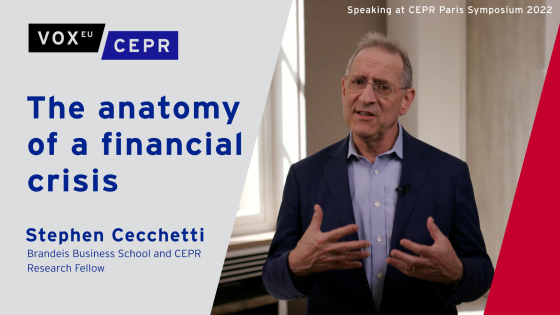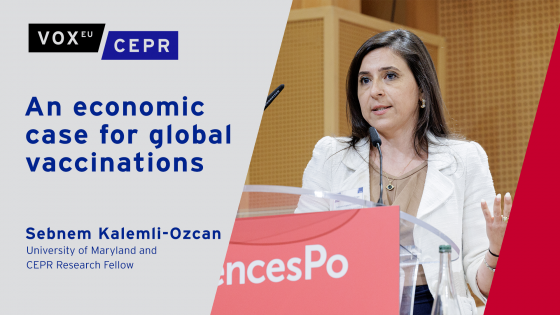One of the least unanticipated but potentially most momentous consequences of the Great Global Credit Crisis of 2008 is the coup staged by the Group of Twenty. The G20 has seized power from the G7/8 as the steering committee for the world economy. If you didn’t believe this before, just compare the attention garnered by the G20 summit last November with the muted response to the G7 finance ministers’ meeting in February in Rome.
R.I.P, G7
No one contemplating global financial reform thinks that the task can still be organised, much less executed, within the cosy confines of the G7. No one who seeks to reform the IMF and the World Bank thinks that the solution can still be hashed out by the G7. No one who is serious about coordinating a global monetary and fiscal response to the deepest recession since World War II thinks that this is something that the G7 can engineer. Whether the task is developing ideas, reaching consensus on their desirability, or moving from ideas to implementation, the G20 – which has working groups active in all these areas – is where the action is.
G20 problems
This is not to suggest that the G20 is without problems. It is a more unwieldy group than the G7. Twenty is an awkwardly large number for a conference call. This makes the G20 ill suited for putting out fires. It is not a reliable mechanism for marshalling an urgent response over a weekend before the markets reopen in Asia on Monday morning. For this, there is still the need for smaller groupings, though presumably with a different composition than the historical G7/8.
Second, there is the issue of legitimacy. Who, in other words, appointed the G20 to represent the 190 countries of the world? Where is the international agreement or treaty describing the selection and rotation mechanisms? What about countries that are left out – ASEAN members who do not obviously see why they should be represented by Indonesia, for example? (Recall that Thailand has a larger GDP, whether measured at market exchange rates or purchasing power parity.) Where is Iran, which is a larger economy than Argentina?
Third, there is the tension, most notably in connection with IMF reform, with the International Monetary and Financial Committee.1 The IMFC has 24 members, not 20. Most but not all of those 24 members represent groups of countries known as constituencies. The IMFC is constitutionally empowered by the IMF’s Articles of Agreement to make decisions about the strategies and policy priorities of the Fund. This, of course, is also something to which the G20 aspires. Presented with competing recommendations from these two bodies, to which should the global community listen?
Fourth, the G20 has organised its work programme into four silos – strengthening financial supervision and regulation, fostering international policy cooperation, reforming the IMF and multilateral development banks, and maintaining open markets.
This organisation into silos is not optimal. The four areas are connected; optimal policy reforms in one area depend on the nature of the policy reforms adopted in others. In addition there is likely to be more scope for productive bargaining if everything is on the table at the same time. There could be cross-issue trades where countries accept compromises that they might otherwise regard as undesirable on some issues in return for getting their preferred position on another issue. Indeed, it is hard to imagine how we can make progress in working toward global agreement on any of these issues in the absence of such horse-trading.
Who should be in the G20?
To start, membership in the G20 and IMFC should be rendered consistent. This may require changes in the membership of the G20, conceivably expanding it from 20 to 24. One can imagine rotation in the countries representing different IMF constituencies, which would not be an entirely bad thing. This would not make everyone better off; certain countries with a seat at the G20 table might find themselves having to share that seat, depending on the rotation convention, with other members of their constituency. But these transactions costs and compromises would be more than justified by the increase in legitimacy of the resulting body and elimination of the conflict between the G20 and IMFC. The IMFC could then be transformed into a Council to oversee the IMF as provided for in the Articles of Agreement of that institution.
Alternatively or perhaps in addition, there could be changes in the composition of the IMFC, which currently includes 7 EU countries among its 24 members. A single EU seat at the IMF being controversial, a single EU representative on the IMFC would not be easy to achieve. But it is worth noting that the EU is a member of the G20. If the Europeans are serious about making the G20 the steering committee for the world economy, then they are going to have to rethink this conflict with their representation on the IMFC. This would be a prerequisite for a more serious role for the IMFC as a governing council for the IMF.
Note that there is nothing to prevent this continuing evolution. The G20 itself evolved out of an earlier body, the Group of 33, which in turn evolved out of the Group of 22 established in the wake of the 1997-98 Asian financial crisis. This precedent suggests that there is nothing other than the entrenched interests of the incumbents to prevent the G20 from evolving into an IMFC-compatible grouping.
Merging the silos
Finally, collapsing the four silos of the G20 process into a larger consolidated negotiation could create scope for a Grand Bargain from which everyone, advanced countries and emerging markets alike, could benefit (Goldstein 2009). The key problem facing the G20 and the world economy is how to rebalance demand, provide support for global growth, and prevent the recurrence of crises, all at the same time.
- The advanced countries emphasise the need for emerging markets to stimulate demand in order to support global growth while preventing the reemergence of global imbalances.
- Emerging markets have concluded from the 2008-9 crisis, not unreasonably, that they need more insurance against volatility, not less. In other words, they need more foreign reserves as a buffer against shocks, which they can obtain only by running even larger current account surpluses and holding down their currencies against the dollar as opposed to letting them rise.
There is a solution, namely giving emerging markets with sound policies access to large, long-duration, unconditional credit lines at the IMF. Knowing that insurance will be available via the Fund, which will then act as a reserve-pooling arrangement for its members, such emerging economies will demand fewer reserves. Emerging markets with the capacity to stimulate demand will be more willing to do so even if this means smaller current account surpluses, stronger exchange rates, and less reserve accumulation.
But this solution presupposes further changes. Specifically, the IMF’s recently established Short-Term Liquidity Facility needs to be reformed so that countries can treat it as precautionary (so that they can qualify for a line without having to draw it). It needs to be reformed so that it can be drawn upon for more than three months at a time (recent experience suggests that volatility and the corresponding need for emergency finance can last for more than three months). And it needs to be reformed so that countries can draw larger amounts (recent experience reminds us of the magnitude of capital-flow reversals).
More fundamentally, this solution presupposes far-reaching changes in the governance of the IMF to give the institution the legitimacy it lacks in the emerging world. In turn, this implies changes in the quotas, votes, and voice of emerging countries extending beyond the token reforms of 2006-08. Half measures will no longer suffice.
The G20 needs an overall game plan
In April the G20 will issue reports recommending, inter alia, measures to promote global rebalancing and to reform the IMF. But if the IMF reform measures fail to adequately address the concerns of emerging markets, then the measures to rebalance the world economy and stabilise global demand, however attractive from the vantage point of the advanced economies, will not be adopted. The G20 needs an overall game plan. It needs to know on what issues (such as IMF reform) to push the envelope so as to make progress on other issues (like global rebalancing) even remotely feasible. More generally, the G20 needs an overarching vision. And it is not clear that it possesses one.
These problems can be solved, but they need first recognition and then action.
References
Morris Goldstein, 2009, “A Grand Bargain for the London G20 Summit”, VoxEU, 19 February 2009.
Editors’ Note: This column is a revision of a speech to the “Global Korea 2009” Conference held in Seoul, 23 February 2009.
1. In the interest of full disclosure I should acknowledge that I am an advisor to the chairman of the IMFC, which may or may not render me a less than disinterested observer.



